Curacorn® - Revolutionising Foot Care
Long-lasting relief for up to 18 months. Minimises callus and corn formation, reducing pain. Safe for diverse patients, including those with Diabetes and Rheumatoid Arthritis.
Conveniently located in Benfleet Essex
297 High Road Benfleet Essex SS7 5HA
Free Parking Available
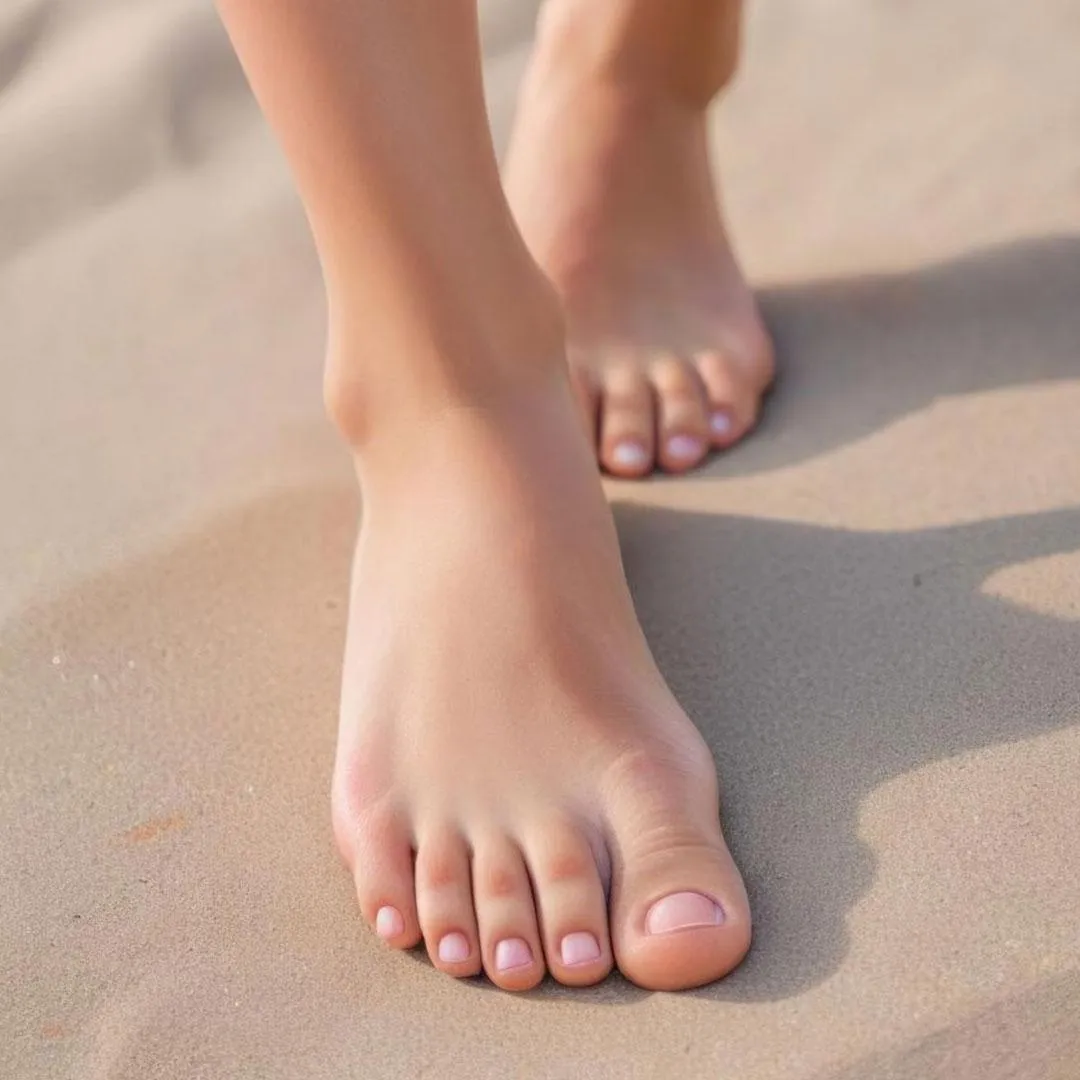
Does any of this sound like YOU ? 🤔
Are you constantly experiencing pain , like it feels as if you're walking on pebbles?
Do you find it difficult to stand for extended periods due to foot discomfort?
Are long walks with your dog out of the question because of your foot pain?
Have you had to give up running because of the pain in your feet?
Are you unable to enjoy playing with your grandchildren in the park due to foot problems?
Is wearing nice shoes a challenge for you because of your foot issues?
Do you often experience pain in the ball of your foot?
Have you been visiting the chiropodist more frequently , and does it hurt when you go?
Does Any of This Sound Familiar?
Are you constantly experiencing pain , like it feels as if you're walking on pebbles?
Do you find it difficult to stand for extended periods due to foot discomfort?
Have you had to give up running because of the pain in your feet?
Are you unable to enjoy playing with your grandchildren in the park due to foot problems?
Is wearing nice shoes a challenge for you because of your foot issues?
Do you often experience pain in the ball of your foot ?
Have you been visiting the chiropodist more frequently , and does it hurt when you go?
If you answered YES to any of the above, you're not alone. At Oakwood Podiatry we hear stories like this every single day and we know EXACTLY how to help fix your pain.
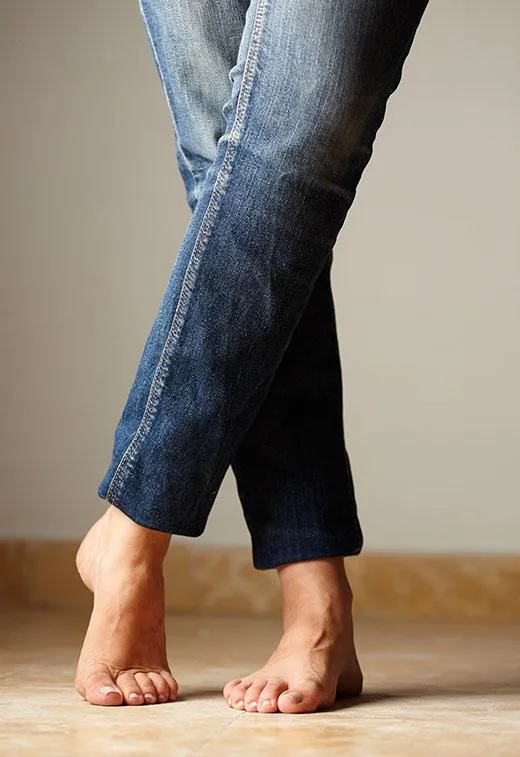
Experts In Podiatry
Benfleet Essex
Still Feeling A Little Confused About Your Corn Or Callus And Don't Know What To Do?
#1 Option (👍 most popular)

#2 Option - Send Us a Message

#3 Option - Book Appointment

What is Curacorn®?
Curacorn® is a unique and innovative treatment method that utilises specialised gel injections.
These injections are designed to create a cushion 'inside' the skin, effectively preventing the development of painful pressure lesions, such as corns.
This treatment is aimed at providing relief from foot discomfort and preventing the recurrence of these painful conditions. It's a specialised approach to addressing foot issues and promoting better foot health.
Discoloured nails
Thickened nails
Brittle or crumbly nails
Buildup of debris under the nail
Foul odour
Difficulty in applying nail polish
Pain or discomfort
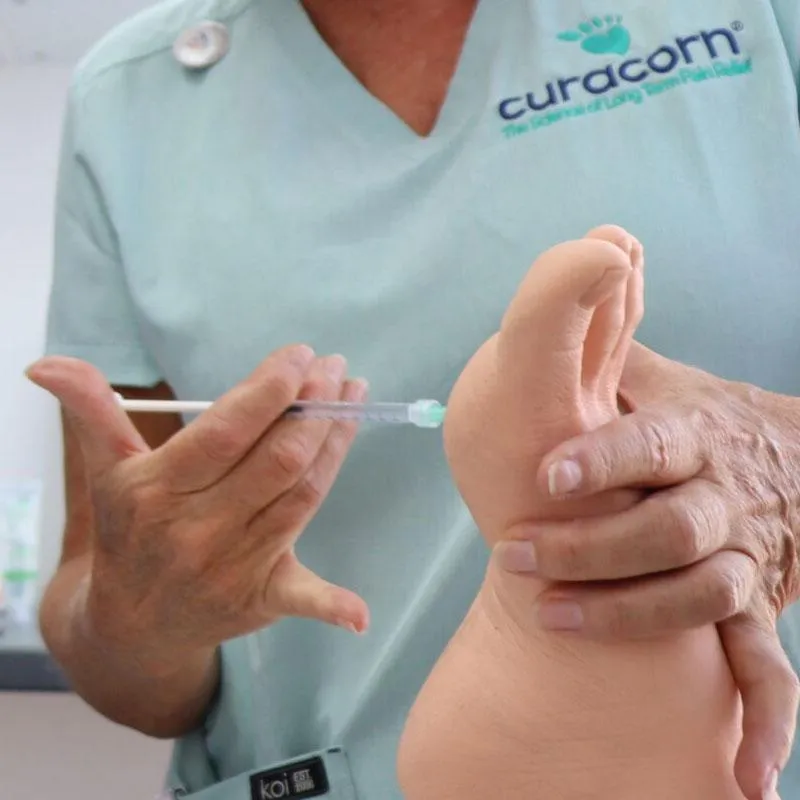
Still Feeling A Little Confused About Your Corn or Callus And Don't Know What To Do?

Not sure who to ask?
Not sure what to do next?
Not sure who can help?
Please fill out the form below and chat with one of our team members about your right next step
The Oakwood Podiatry Curacorn®
Who Benefits from Curacorn®?
Individuals with chronic corns in high-pressure areas or between toes.
Those experiencing thinning of the natural fatty padding in the ball of the foot.
Athletes wearing tight footwear and anyone desiring pain-free mobility.
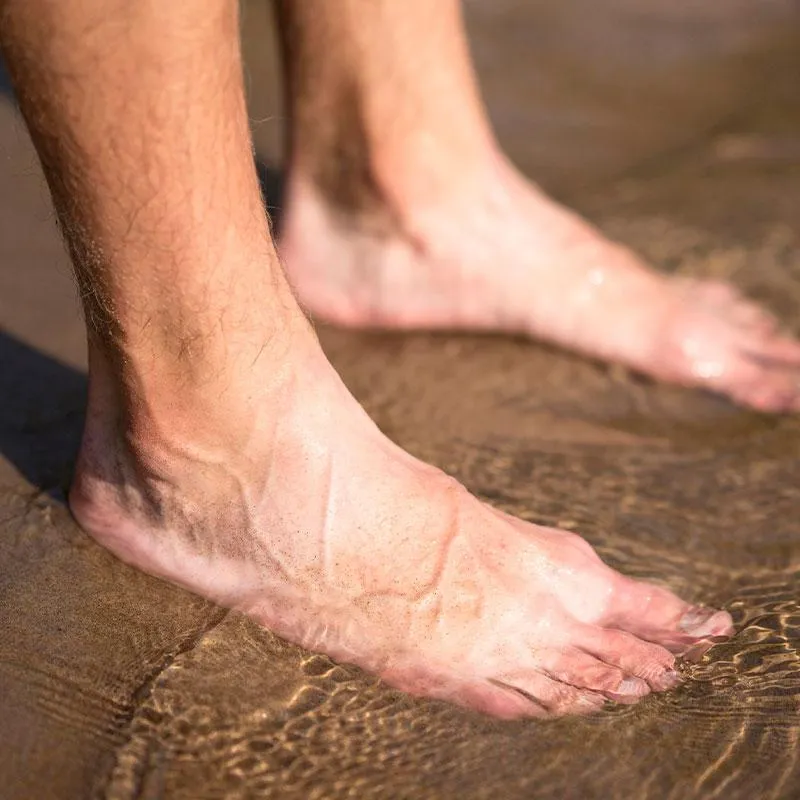
The Curacorn® Process
Assessment: Comprehensive evaluation including medical history, and foot structure analysis.
Treatment: Local anesthesia followed by the injection of Curacorn® into affected areas.
Follow-up: A series of appointments to assess, review, and top-up treatment if necessary.
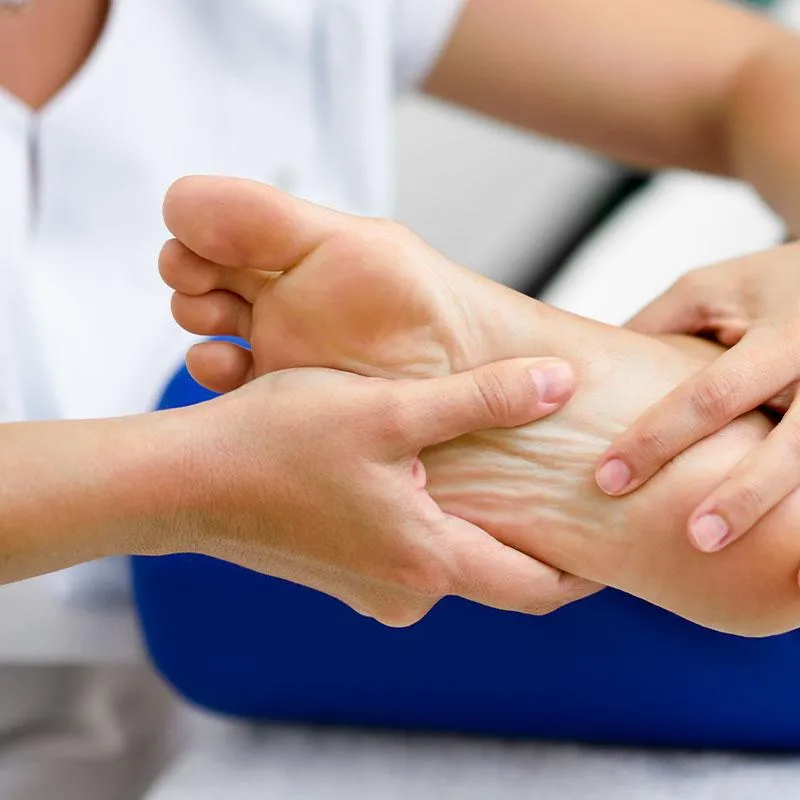
Step 3 - Recovery
Each treatment aims to gently and progressively get your moving again without pain, as quickly as possible, to allow you to get back to normal and start doing the things you love.
We will give you a structured rehabilitation programme, to help break the cycle and prevent the problem from returning.
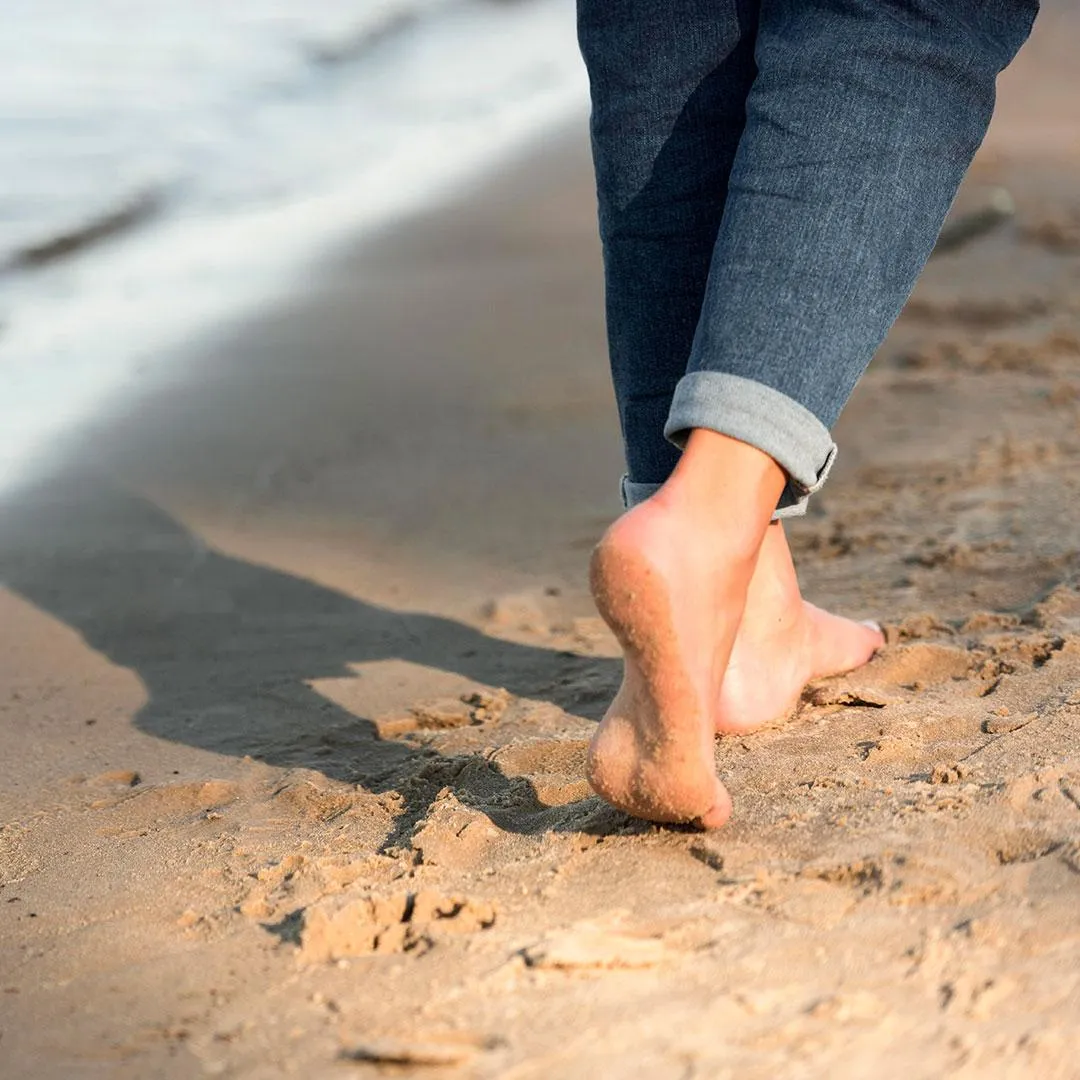
Is The Curacorn® Therapy Programme Right for You ? 🤔
Our team of podiatrists at Oakwood Podiatry are experts in corn and calluses treatment helping 1000's of patients to get back walking and running with relief from uncomfortable Corns or Callus.
How would you like to be able to...
Be able to do the activities that you want to do
Be able to wear footwear without pain at all
Save money - by reducing your visits to the chiropodist
Spend time on your feet without pain
What's next? You've got a decision to make - another month gone by without solving your corn or callus problem, or are you ready to get back to doing the things you love?
Is Your Fungal Nail Ruining Your Confidence? Take Us Up on One of Our Free Options
Option #1 (👍 most popular)

Option #2
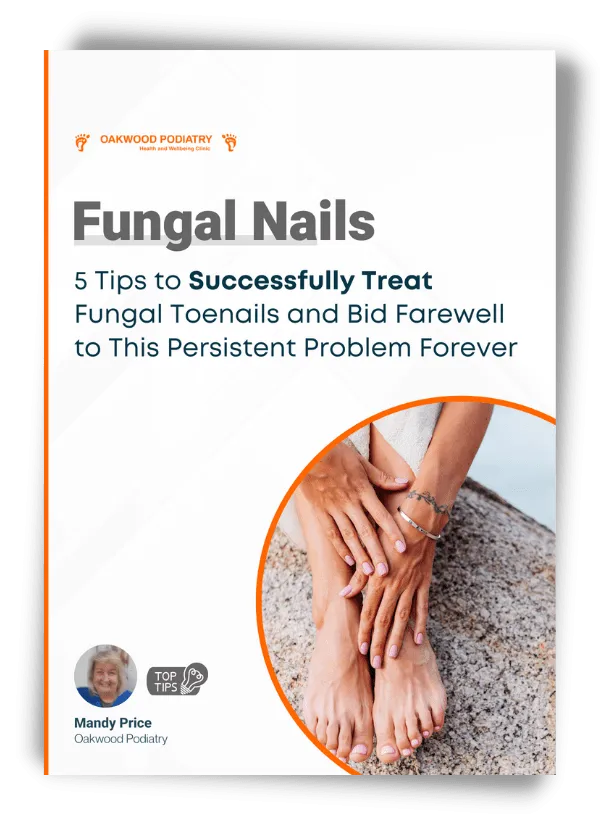

From Consultation to Treatment
What to Expect at Your First Podiatry Visit
We're excited to see you at your appointment! We want to make sure you feel comfortable and well-informed, so don't hesitate to ask us any questions about our treatments and our clinic. Our goal is to help you get back to living your life free of pain, so let's work together to make that happen!
Discuss your foot health goals
Complete foot examination
Discover your options
Start a custom treatment plan


4 Reasons To Choose Oakwood Podiatry

Specialised Expertise: Our clinic offers specialised care from highly-trained podiatrist in various fields like sports rehab and chronic pain management.
Comprehensive Approach: We provide holistic treatment plans combining manual therapy, exercises, and cutting-edge technology for a well-rounded approach.
Cutting-Edge Facilities: Equipped with state-of-the-art facilities and advanced equipment to support patients' recovery.
Proven Track Record: Our clinic's reputation is built on successful patient outcomes and positive feedback, fostering a supportive environment for rehabilitation.
Frequently Asked Questions About Fungal Nails
What causes fungal toenails?
Fungal toenails, also known as onychomycosis, are primarily caused by various types of fungi, such as dermatophytes, yeasts, and molds. These organisms thrive in warm and moist environments, making toenails susceptible to infection, especially in conditions like sweaty shoes or damp communal areas.
How can I prevent fungal toenail infections?
To prevent fungal toenail infections, practice good foot hygiene. Keep your feet clean and dry, trim your toenails regularly, wear breathable shoes, and change socks frequently. Avoid walking barefoot in public places like locker rooms and pool areas, and be cautious when getting pedicures to ensure that tools are properly sanitised.
What are the symptoms of fungal toenails?
Common symptoms of fungal toenails include discoloration (yellowing or darkening of the nail), thickening, brittleness, distorted shape, and a foul odor. In some cases, the infected nail may separate from the nail bed, leading to pain or discomfort.
How is a fungal toenail infection diagnosed?
Diagnosis often involves a visual examination by a healthcare professional. Additionally, they may take a nail clipping or sample to perform laboratory tests like a fungal culture or microscopy to identify the specific fungus causing the infection.
What are the treatment options for fungal toenails?
Treatment options vary, and they may include antifungal medications (oral or topical), medicated nail polish, or in severe cases, surgical removal of the nail. It's important to consult with a healthcare professional to determine the most appropriate treatment based on the severity of the infection.
How long does it take to cure a fungal toenail infection?
The duration of treatment varies depending on the severity of the infection and the chosen treatment method. It may take several weeks to several months for the new, healthy nail to replace the infected portion. Consistent and diligent adherence to the prescribed treatment is crucial for successful resolution.
Can over-the-counter antifungal products treat fungal toenails effectively?
While some over-the-counter antifungal products may provide relief for mild cases, consulting a healthcare professional for proper diagnosis and prescription-strength medications is advisable for more severe infections. Over-the-counter options may not be potent enough for effective treatment in some cases.
Are fungal toenail infections contagious?
Yes, fungal toenail infections can be contagious. Avoid sharing personal items such as nail clippers and socks, and practice good hygiene to reduce the risk of spreading the infection to others or other areas of your own body.
Can I wear nail polish if I have a fungal toenail infection?
It's generally recommended to avoid nail polish during the treatment of a fungal toenail infection, as it may trap moisture and exacerbate the condition. Keeping the nails clean and allowing them to breathe is crucial for effective treatment.
What should I do if home remedies don't improve my fungal toenails?
If home remedies prove ineffective, or if the infection worsens, consult a healthcare professional. They can provide a proper diagnosis and recommend appropriate prescription medications or other advanced treatment options. Early intervention increases the likelihood of successful treatment.
Please note that these FAQs provide general information and should not replace personalised advice from a qualified healthcare professional. It is important to consult with a trusted podiatrist to assess your individual case and determine the most suitable treatment plan for your fungal nail.
Frustrated With Your Corn Or Callus?

Not sure who to ask?
Not sure what to do next?
Not sure who can help?
Please fill out the form below and chat with one of our team members about your right next step
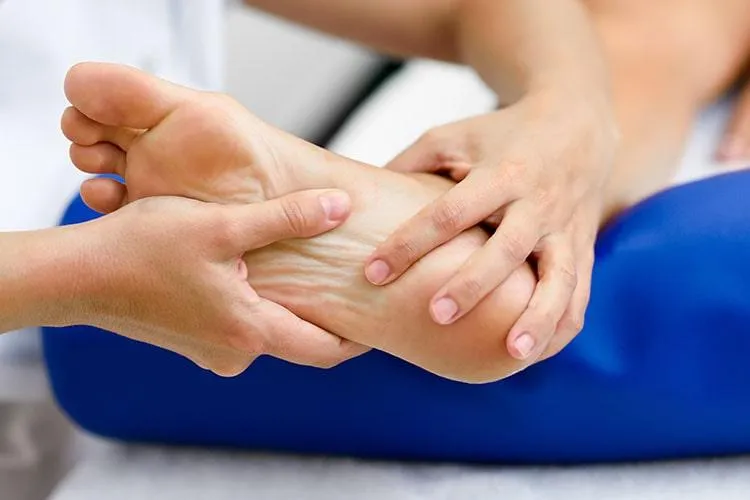
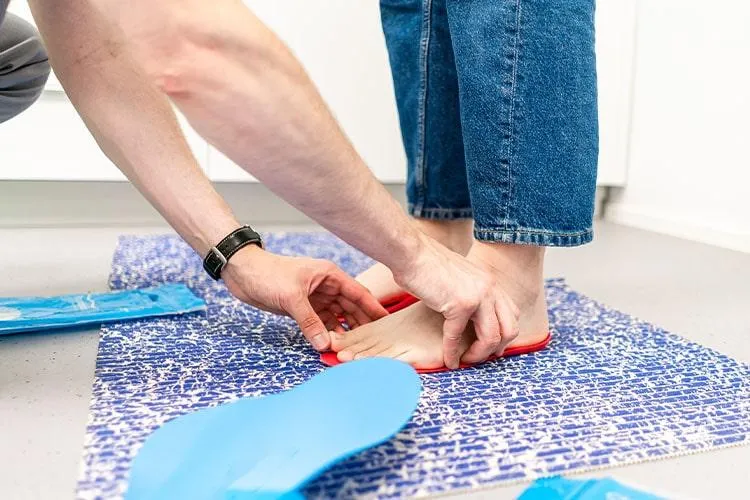
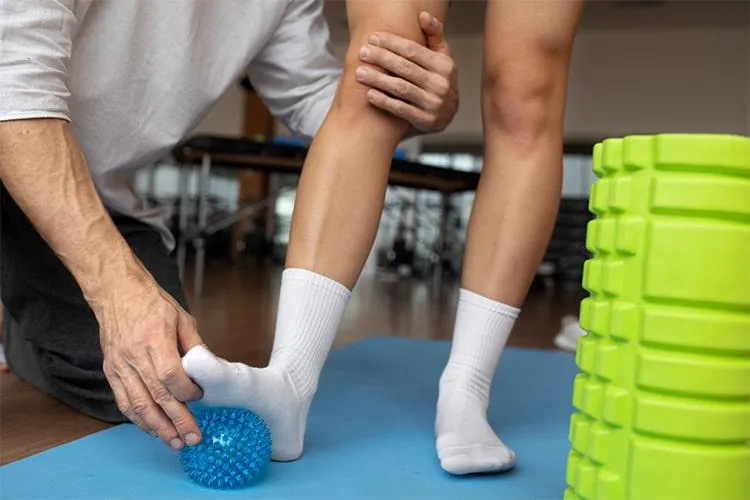
Where To Find Oakwood Podiatry

If you have any questions before scheduling an appointment or for general inquiries, please use the contact us button below. Our team will promptly reach out to assist you.
Opening Hours
Monday: 9am - 5pm
Tuesday: 9am - 5pm
Wednesday: 9am - 5pm
Thursday: 9am - 5pm
Friday: 9am - 5pm
Saturday: Closed
Sunday: Closed

